
The Timeless Medina of Sousse: A Journey through History and Culture
Nestled within the vibrant coastal city of Sousse, Tunisia, the Medina of Sousse stands as a testament to centuries of rich history and cultural diversity. This UNESCO World Heritage site is a labyrinth of narrow, winding streets, bustling souks, and historical landmarks that transport visitors back to a time when Sousse was a key trading hub in the Mediterranean. As you wander through the Medina, you'll encounter the awe-inspiring Ribat, a fortified monastery dating back to the 8th century. Climb to the top of its tower for panoramic views of the city and the sparkling Mediterranean Sea. Nearby, the Great Mosque, with its imposing minaret and serene courtyard, offers a glimpse into the spiritual life of the Medina's inhabitants. The souks are the heart and soul of the Medina, where you can immerse yourself in the sights, sounds, and scents of traditional Tunisian life. From vibrant textiles and intricate ceramics to fragrant spices and handcrafted jewelry, the markets are a treasure trove of unique souvenirs. Don't miss the opportunity to sample local delicacies, such as brik, a savory pastry, or fresh dates from the surrounding orchards. Beyond the historical and cultural attractions, the Medina of Sousse is a living, breathing community. The friendly locals are always eager to share their stories and traditions, ensuring that every visit is a memorable experience. Whether you're a history buff, a culture enthusiast, or simply looking for an authentic Tunisian adventure, the Medina of Sousse promises an unforgettable journey through time and tradition.
Local tips in Medina of Sousse
- Wear comfortable shoes as the Medina's narrow streets are best explored on foot.
- Visit early in the morning to avoid the midday heat and large crowds.
- Carry some cash, as many of the smaller vendors in the souks do not accept credit cards.
- Look for the locally-made ceramics and textiles for unique souvenirs.
- Respect local customs and dress modestly, especially when visiting religious sites.
The Timeless Medina of Sousse: A Journey through History and Culture
Nestled within the vibrant coastal city of Sousse, Tunisia, the Medina of Sousse stands as a testament to centuries of rich history and cultural diversity. This UNESCO World Heritage site is a labyrinth of narrow, winding streets, bustling souks, and historical landmarks that transport visitors back to a time when Sousse was a key trading hub in the Mediterranean. As you wander through the Medina, you'll encounter the awe-inspiring Ribat, a fortified monastery dating back to the 8th century. Climb to the top of its tower for panoramic views of the city and the sparkling Mediterranean Sea. Nearby, the Great Mosque, with its imposing minaret and serene courtyard, offers a glimpse into the spiritual life of the Medina's inhabitants. The souks are the heart and soul of the Medina, where you can immerse yourself in the sights, sounds, and scents of traditional Tunisian life. From vibrant textiles and intricate ceramics to fragrant spices and handcrafted jewelry, the markets are a treasure trove of unique souvenirs. Don't miss the opportunity to sample local delicacies, such as brik, a savory pastry, or fresh dates from the surrounding orchards. Beyond the historical and cultural attractions, the Medina of Sousse is a living, breathing community. The friendly locals are always eager to share their stories and traditions, ensuring that every visit is a memorable experience. Whether you're a history buff, a culture enthusiast, or simply looking for an authentic Tunisian adventure, the Medina of Sousse promises an unforgettable journey through time and tradition.
Iconic landmarks you can’t miss
Ribat of Sousse
Discover the historical wonders of the Ribat of Sousse, a majestic fortress that blends stunning architecture with rich local history.
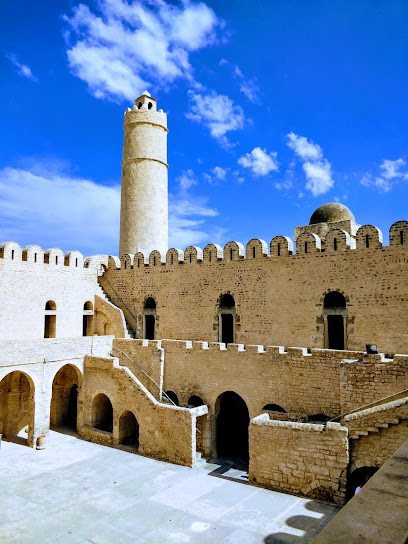
Bled el Arbi Sousse
Explore the historical significance and vibrant culture of Bled el Arbi, a stunning landmark in the heart of Sousse, Tunisia.
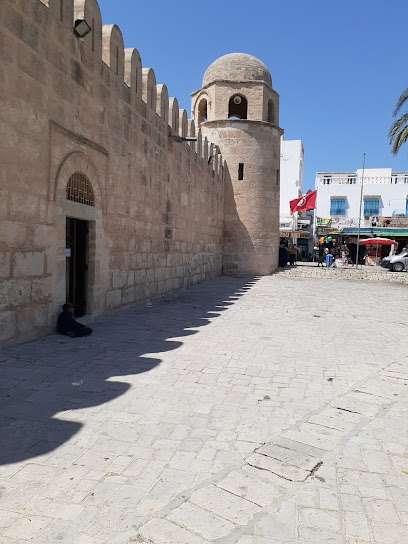
Walls of the Medina
Explore the historic Walls of the Medina in Sousse, Tunisia – a UNESCO World Heritage site filled with rich history, stunning architecture, and vibrant local culture.
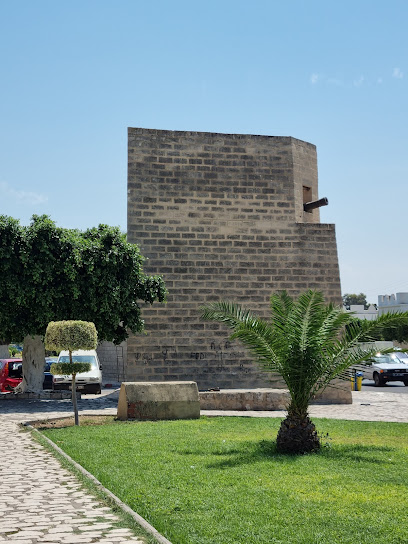
Les remparts de Sousse
Explore the majestic Ramparts of Sousse, a UNESCO World Heritage site showcasing Tunisia's rich history and stunning coastal views.
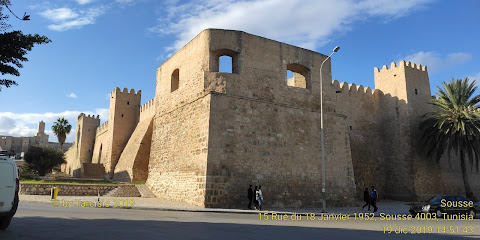
Monument des Martyrs
Discover the rich history of Tunisia at the Monument des Martyrs in Sousse, a stunning tribute to those who fought for freedom.
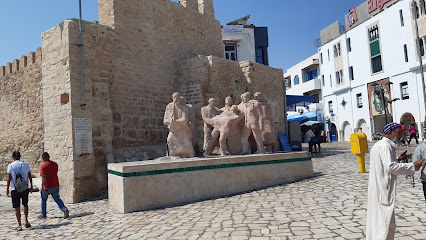
Médina de Sousse foto Ouali Bechir
Experience the vibrant culture and rich history of Médina de Sousse, a UNESCO World Heritage site filled with charming streets, stunning architecture, and lively markets.
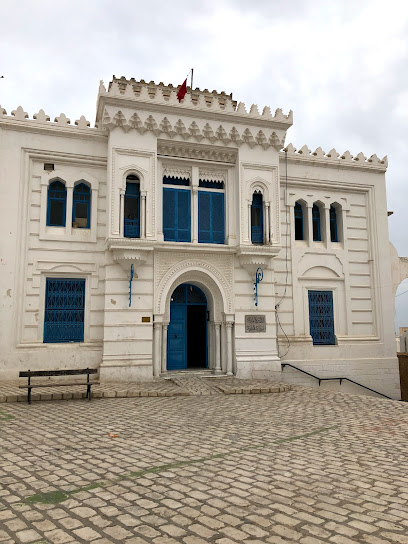
Portes et fortifications de Sousse Médina
Explore the historic Portes et Fortifications de Sousse Médina, a stunning testament to Tunisia's rich past and architectural beauty.
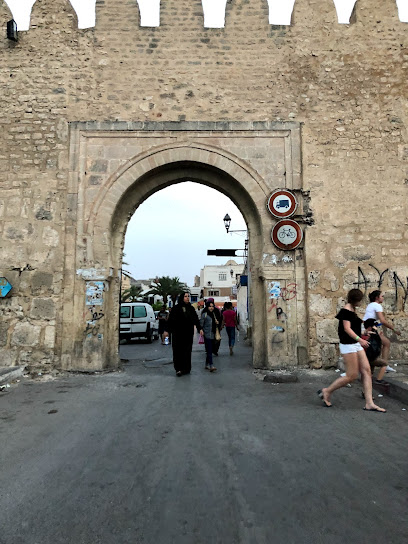
L'entrée de la Médina de Sousse
Discover the vibrant history and culture at the entrance to Sousse's Medina, a UNESCO World Heritage site full of life and tradition.
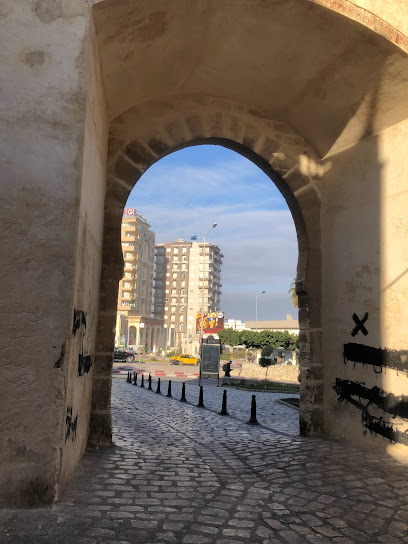
Ancienne Médina
Discover the vibrant history and culture of Ancienne Médina in Sousse, a UNESCO World Heritage site rich in architecture, markets, and local cuisine.
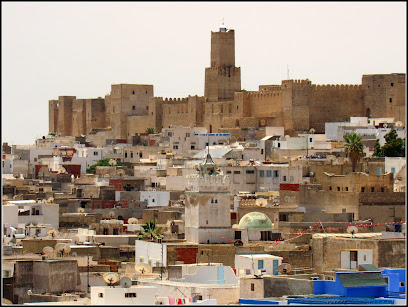
Sousse Medina
Discover the enchanting Sousse Medina, a UNESCO World Heritage site rich in history, culture, and vibrant local life, perfect for any traveler seeking adventure.

Unmissable attractions to see
Ribat of Sousse
Discover the Ribat of Sousse, an iconic historical landmark that showcases Tunisia's rich heritage and offers breathtaking views of the Mediterranean Sea.
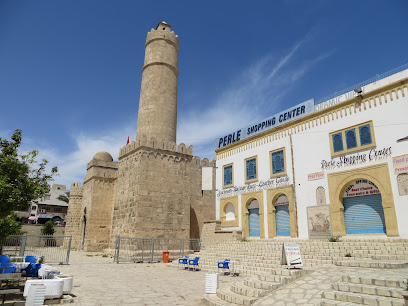
Sousse Archaeological Museum
Discover the rich history of Tunisia at the Sousse Archaeological Museum, home to exquisite mosaics and artifacts from ancient civilizations.
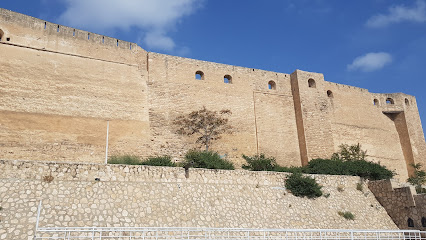
Musée magic eye 3D
Immerse yourself in creativity and fun at Musée Magic Eye 3D in Sousse, where art and imagination create unforgettable experiences.
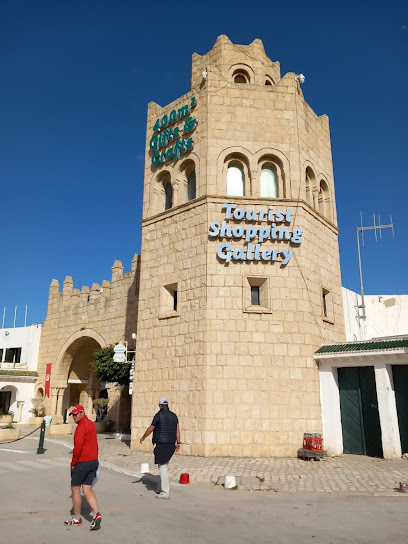
Museum Dar Essid
Explore the rich cultural heritage of Sousse at Museum Dar Essid, a beautifully preserved traditional house filled with art and history.
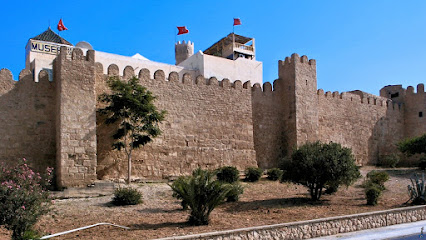
Promenade des Remparts
Explore the breathtaking Promenade des Remparts in Sousse, where historic charm meets tranquil beauty along the Mediterranean coast.
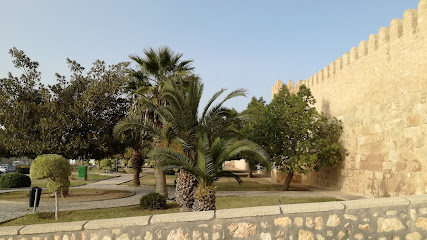
Bateau Pirate Mabrouka
Sail into adventure at Bateau Pirate Mabrouka: a thrilling pirate-themed experience on the Mediterranean Sea in Sousse.
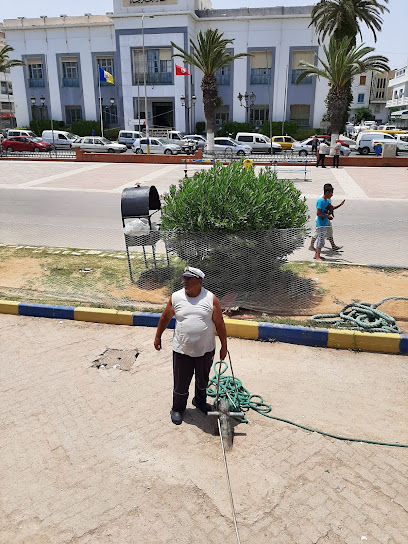
Médina de Sousse foto Ouali Bechir
Unveil the vibrant history and culture of Médina de Sousse, a UNESCO World Heritage site filled with enchanting streets, markets, and ancient architecture.
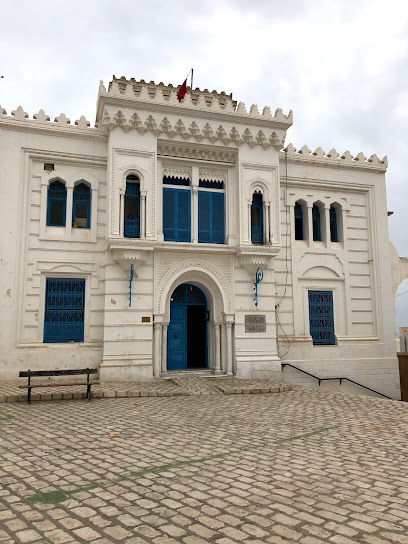
L'entrée de la Médina de Sousse
Explore the enchanting entrance of the Medina of Sousse, where history, culture, and vibrant markets await every traveler in Tunisia.
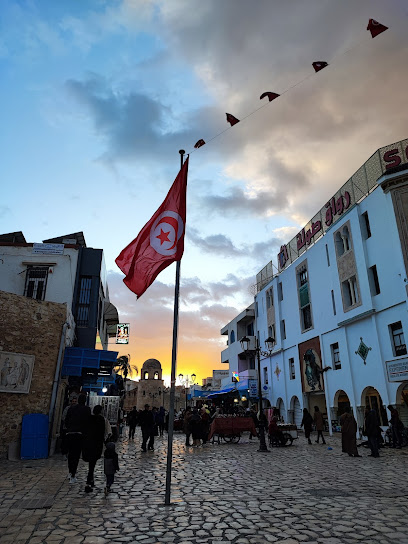
Ancienne Médina
Explore the enchanting streets of Ancienne Médina in Sousse, a UNESCO World Heritage site filled with history, culture, and vibrant local markets.
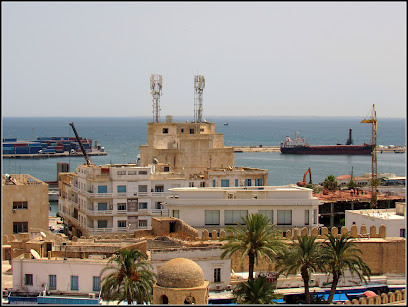
Essential places to dine
Restaurant du Peuple
Experience the rich flavors of Tunisia at Restaurant du Peuple in Sousse, where authentic cuisine meets warm hospitality.
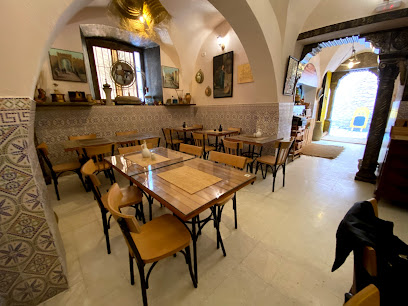
Restaurant Lido
Discover the rich flavors of Tunisia at Restaurant Lido in Sousse – where local tradition meets culinary innovation.
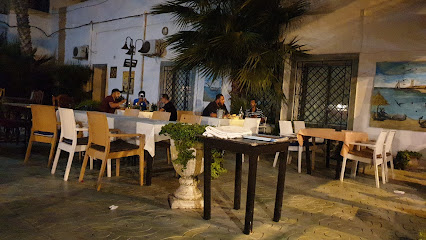
Restaurant At Bibichou's
Experience authentic Tunisian cuisine at Restaurant At Bibichou's, where tradition meets taste in the heart of Sousse.
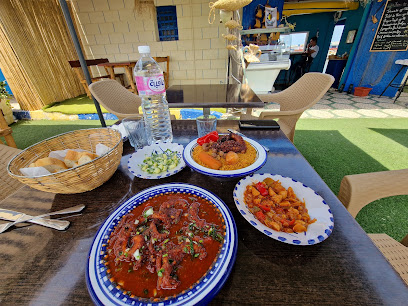
Dell'Arte
Experience authentic Tunisian cuisine at Dell'Arte in Sousse - where fresh ingredients meet culinary creativity.
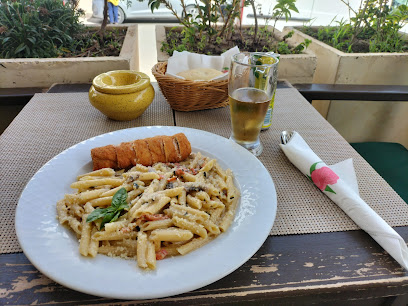
Restaurant el Ferdaws
Experience authentic Tunisian cuisine at Restaurant el Ferdaws in Sousse—where every dish tells a story of local flavors and warm hospitality.
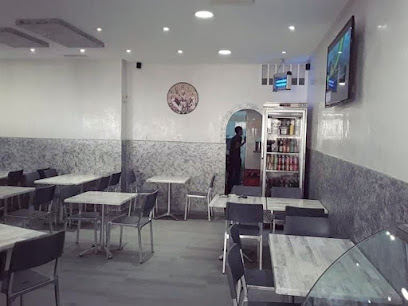
Le poisson d'or
Discover authentic Tunisian cuisine at Le Poisson d'Or, a must-visit restaurant in Sousse renowned for its fresh seafood and warm hospitality.
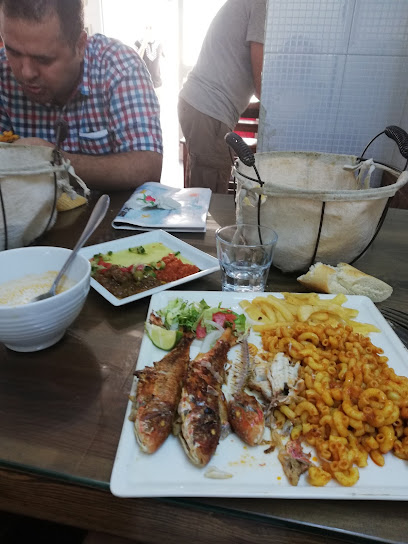
Restaurant bar le cristal
Experience authentic Tunisian cuisine at Restaurant Bar Le Cristal in Sousse – where flavor meets tradition.
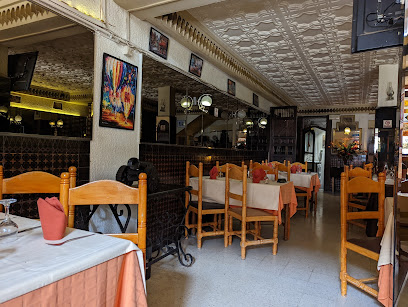
Restaurant Le Bonheur
Discover the flavors of Tunisia at Restaurant Le Bonheur in Sousse—where local ingredients meet culinary artistry.
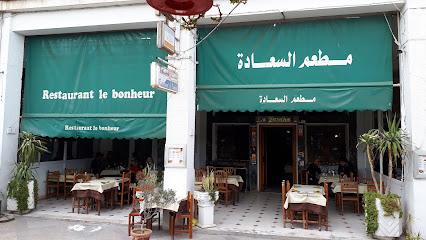
Le Must Restaurant & Lounge
Experience exquisite dining at Le Must Restaurant & Lounge in Sousse, blending local flavors with international cuisine in an inviting atmosphere.
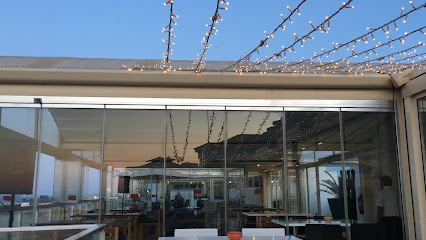
Restaurant L'etoile
Discover authentic Tunisian cuisine at Restaurant L'etoile in Sousse—where every meal is a celebration of flavor and culture.
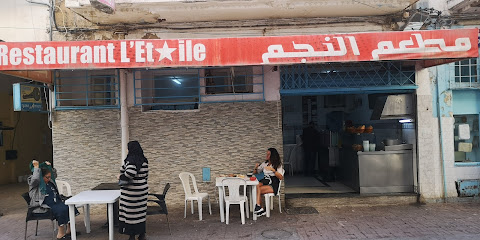
Markets, malls and hidden boutiques
La médina de Sousse
Experience the vibrant culture and rich history of La Médina de Sousse, a UNESCO World Heritage site filled with charm and local treasures.
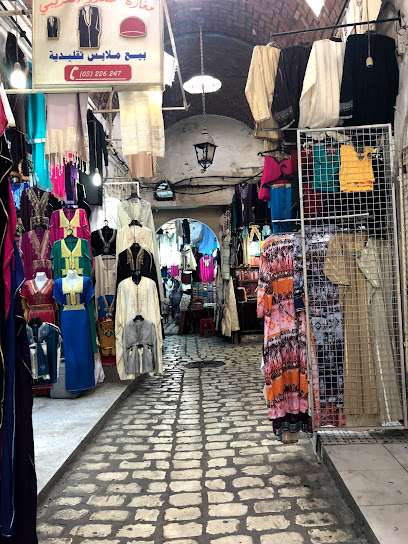
Perle Shopping Center
Explore the Perle Shopping Center in Sousse - a vibrant shopping destination with diverse shops, delicious dining, and exciting entertainment.
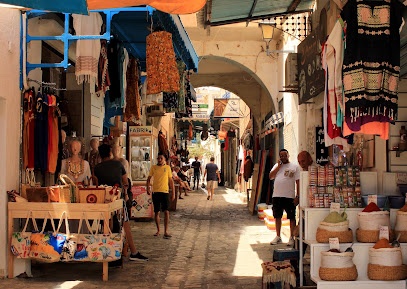
Ali.Baba.Gallery
Explore the vibrant world of Tunisian fashion at Ali.Baba.Gallery in Sousse, a must-visit clothing store for unique styles and quality craftsmanship.
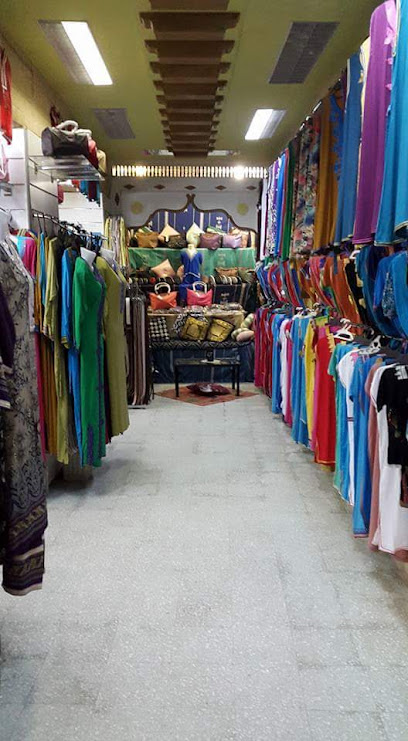
BELKARIMI Shop
Explore BELKARIMI Shop in Sousse for unique clothing and stylish accessories that celebrate both local heritage and contemporary fashion trends.
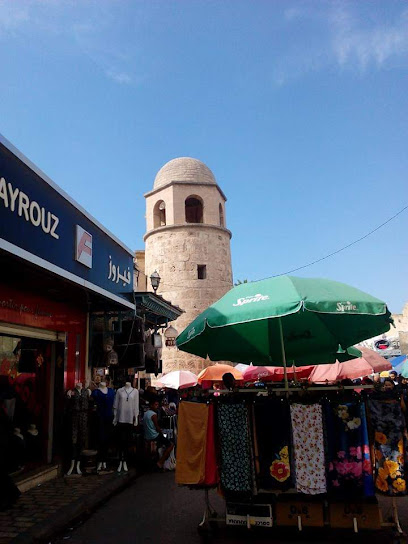
Bedday negoce
Explore the charm of Tunisia at Bedday Negoce, a unique gift shop in Sousse offering handmade treasures and local crafts.
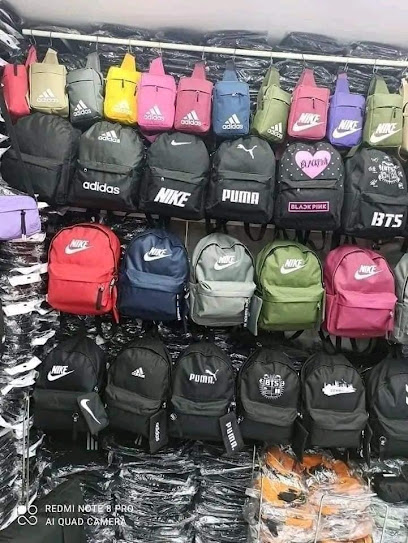
Hamza Boutique
Explore unique clothing and accessories at Hamza Boutique in Sousse, where tradition meets modern fashion.
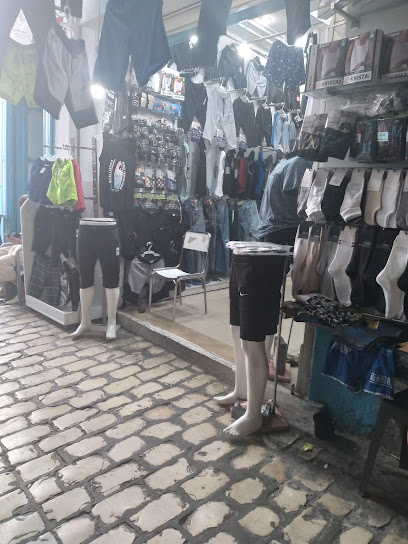
Caraibes shop
Explore local treasures and artisanal crafts at Caraibes Shop in Sousse, a must-visit store for unique souvenirs and gifts.
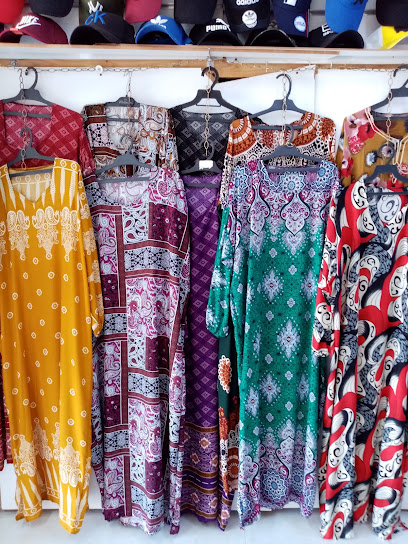
La Grotte
Discover unique Tunisian crafts and souvenirs at La Grotte, Sousse's charming gift shop, where every piece tells a story of local artistry.
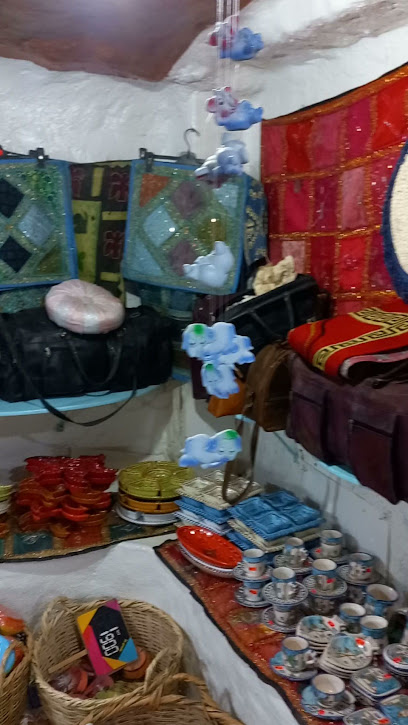
Boutique Bel Kahla
Explore Boutique Bel Kahla in Sousse for unique clothing that reflects Tunisia's rich culture and vibrant style.
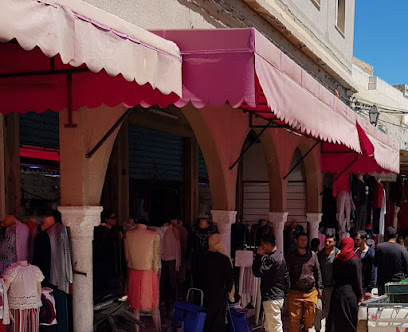
Boutique ZOLA
Explore Boutique ZOLA in Sousse: A unique shopping experience featuring handcrafted treasures and local artistry.
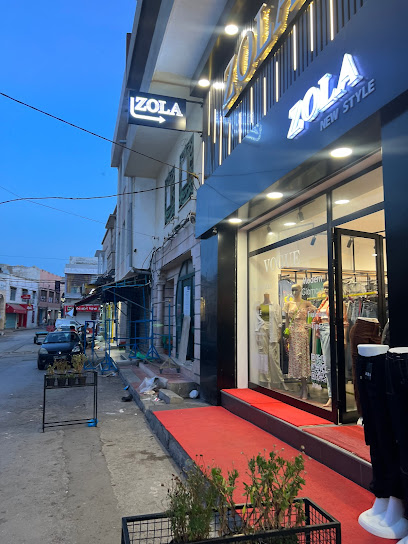
Essential bars & hidden hideouts
Restaurant du Peuple
Experience the authentic flavors of Tunisia at Restaurant du Peuple in Sousse, where traditional cuisine meets warm hospitality.
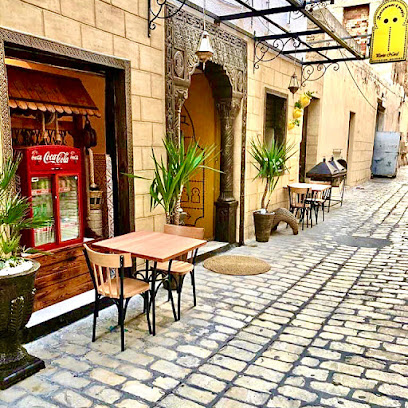
Legend's café restaurant
Experience the local flavors and vibrant ambiance at Legend's Café Restaurant in Sousse, a culinary gem for every traveler.
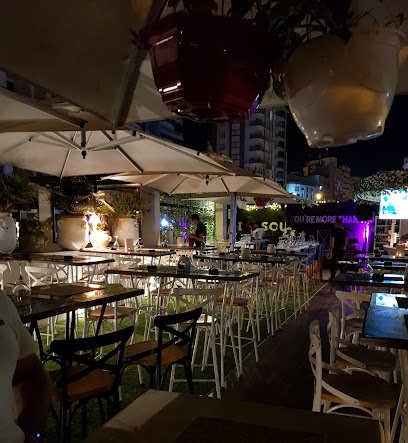
Rose and Crown
Discover the lively Rose and Crown bar in Sousse, where locals and tourists unite for a night of fun, drinks, and live music in a vibrant atmosphere.
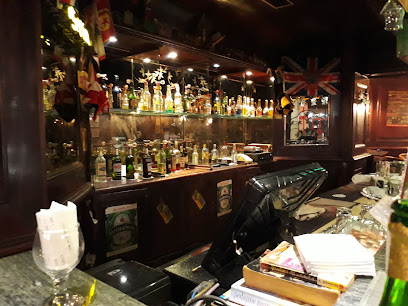
Le P’tit Bar de Sousse
Discover the vibrant nightlife of Sousse at Le P’tit Bar, where every drink tells a story in an inviting atmosphere.
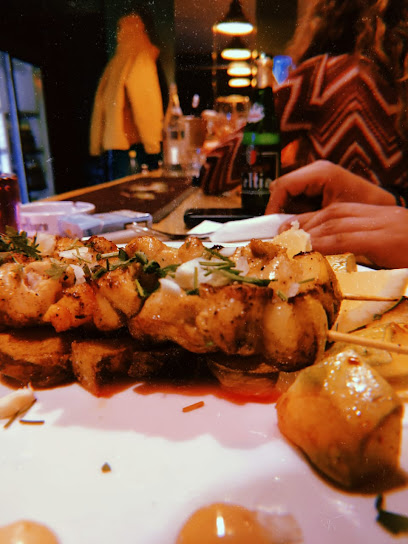
Paris cafe bar
Experience the vibrant Paris cafe bar in Sousse, where local culture meets Parisian charm for an unforgettable night out.
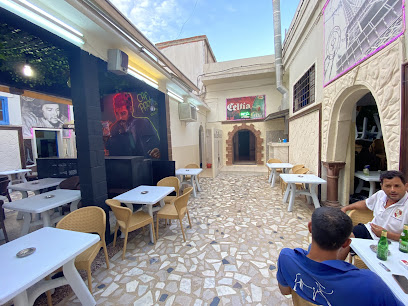
Mokis Restobar
Discover the exquisite flavors of Tunisia at Mokis Restobar, a premier wine bar in Sousse, where every sip tells a story.
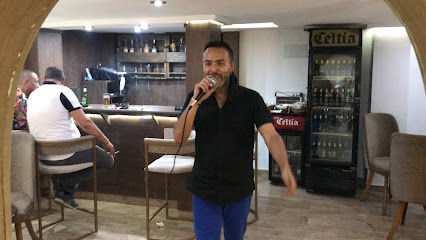
مقهى حانة البالاص Café bar Palace
Discover Café Bar Palace in Sousse, where vibrant atmosphere meets delicious drinks for an unforgettable experience.
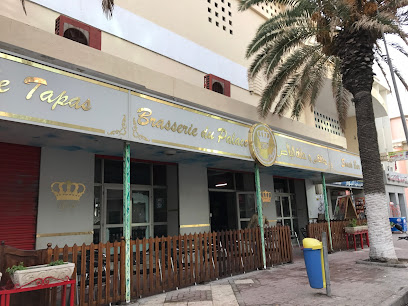
BAR AZZOUZ بار عزوز
Experience the vibrant nightlife of Sousse at BAR AZZOUZ, where friendly atmosphere and refreshing drinks await you.

Fraj
Experience the excitement of live sports in Sousse at Fraj, a lively sports bar offering delicious food and an electric atmosphere.
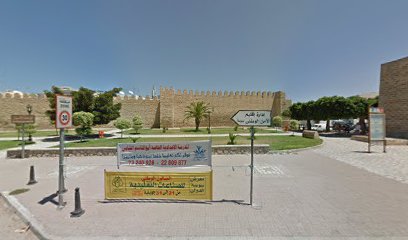
Sousse
Discover the charm of Sousse, Tunisia, where ancient history meets vibrant nightlife along stunning Mediterranean shores.
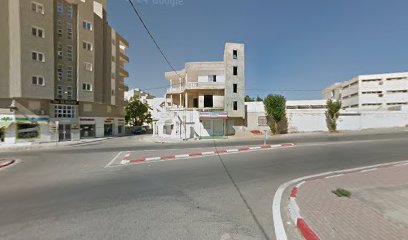
Local Phrases
-
- Helloمرحبا
[marhaba] - Goodbyeمع السلامة
[ma'a assalama] - Yesنعم
[naam] - Noلا
[laa] - Please/You're welcomeمن فضلك
[min fadlik] - Thank youشكرا
[shukran] - Excuse me/Sorryعذرا
[aadhran] - How are you?كيف حالك؟
[kayfa halik?] - Fine. And you?بخير. وأنت؟
[bikhayr. wa'ant?] - Do you speak English?هل تتكلم الإنجليزية؟
[hal tatakallam al'inglizia?] - I don't understandلا أفهم
[laa afham]
- Helloمرحبا
-
- I'd like to see the menu, pleaseأريد أن أرى القائمة، من فضلك
[uridu an ara alqa'ima, min fadlik] - I don't eat meatأنا لا آكل اللحم
[ana la aakul allahm] - Cheers!في صحتك!
[fi sahtak!] - I would like to pay, pleaseأريد أن أدفع، من فضلك
[uridu an adfaa, min fadlik]
- I'd like to see the menu, pleaseأريد أن أرى القائمة، من فضلك
-
- Help!النجدة!
[alnajda!] - Go away!اذهب بعيدا!
[adhhab ba'eedan!] - Call the Police!اتصل بالشرطة!
[atasil bialshurta!] - Call a doctor!اتصل بالطبيب!
[atasil bialtabib!] - I'm lostلقد ضللت الطريق
[laqad dalalt altariq] - I'm illأنا مريض
[ana mareed]
- Help!النجدة!
-
- I'd like to buy...أريد أن أشتري...
[uridu an ashtari...] - I'm just lookingأنا فقط أتفرج
[ana faqat atfarruj] - How much is it?كم هو ثمنه؟
[kam huwa thamanuh?] - That's too expensiveهذا غالي جدا
[hatha ghali jiddan] - Can you lower the price?هل يمكنك خفض السعر؟
[hal yumkinuka khafd alsu'ur?]
- I'd like to buy...أريد أن أشتري...
-
- What time is it?كم الساعة؟
[kam alsaa'a?] - It's one o'clockالساعة الواحدة
[alsaa'at alwaahida] - Half past (10)الساعة العاشرة والنصف
[alsaa'at al'ashira walnisf] - Morningالصباح
[assabah] - Afternoonالعصر
[ala'sr] - Eveningالمساء
[almasa'] - Yesterdayالبارحة
[albariha] - Todayاليوم
[alyawm] - Tomorrowغدا
[ghadan] - 1واحد
[wahid] - 2اثنان
[ithnan] - 3ثلاثة
[thalatha] - 4أربعة
[arba'a] - 5خمسة
[khamsa] - 6ستة
[sitta] - 7سبعة
[sab'a] - 8ثمانية
[thamania] - 9تسعة
[tasia'a] - 10عشرة
[ashara]
- What time is it?كم الساعة؟
-
- Where's a/the...?أين ...؟
[ayn...?] - What's the address?ما هو العنوان؟
[ma huwa al'uanan?] - Can you show me (on the map)?هل يمكنك أن تريني (على الخريطة)؟
[hal yumkinuka an tureenii (ala alkhuritah)?] - When's the next (bus)?متى الحافلة التالية؟
[mata alhafilah altalia?] - A ticket (to ....)تذكرة (إلى ...)
[tazkirah (ila ...)]
- Where's a/the...?أين ...؟
History of Medina of Sousse
-
The Medina of Sousse was established in the 9th century when the Abbasids founded the city, originally known as 'Hadrumetum.' Its strategic coastal position made it a vital hub for trade and maritime activities in the Mediterranean, fostering early economic growth and cultural exchange.
-
In the 12th century, Sousse came under the control of the Almohad dynasty, which fortified the Medina with impressive walls and gates. This period marked a significant architectural and cultural flourishing, with the construction of the Great Mosque and the Ribat, a military fortress that served both defensive and religious purposes.
-
During the Middle Ages, the Medina of Sousse became a prominent center for trade, connecting North Africa with Europe. The bustling souks (markets) were filled with goods from various regions, including textiles, spices, and ceramics, reflecting the diverse influences and interactions of the time.
-
In the 16th century, Sousse fell under Ottoman rule, which further enriched the region's cultural tapestry. The Ottomans implemented new administrative structures and enhanced the city's defenses, leaving behind a legacy of beautiful architecture, including mosques and public baths that can still be seen today.
-
The French protectorate established in 1881 brought modernization to Sousse, impacting its urban landscape. While traditional elements of the Medina were preserved, new infrastructures such as roads and schools were introduced, setting the stage for the city's contemporary developments while still honoring its historical roots.
Medina of Sousse Essentials
-
The Medina of Sousse is easily accessible from other neighborhoods in Sousse. If you're coming from the Sousse city center, you can walk to the Medina in about 15 minutes. Local taxis are also an option; just ensure to negotiate the fare beforehand or use a taxi app. For those arriving from the Sousse railway station, a short taxi ride will get you there in approximately 10 minutes. Buses are available as well, with routes that frequently service the area.
-
The Medina of Sousse is a pedestrian-friendly area, making it ideal for walking. Most attractions are within a short distance from each other. There are no trains within the Medina, but local buses and taxis can be used for longer distances if needed. Bicycle rentals are available, and cycling can be a pleasant way to explore the surrounding areas outside the Medina.
-
The Medina of Sousse is generally safe for tourists, but it’s important to stay vigilant. Petty crimes, such as pickpocketing, can occur, especially in crowded markets and tourist hotspots. It’s advisable to avoid poorly lit areas at night and to keep valuables secure. Areas such as the outskirts of the Medina may have higher crime rates, so it's best to stick to well-trafficked streets.
-
In case of emergency, dial 19 for police assistance or 190 for ambulance services in Tunisia. The local hospital in Sousse can provide medical help, and it’s advisable to have travel insurance that covers emergencies. Pharmacies are also available throughout the Medina for minor health issues.
-
Fashion: Do dress modestly, particularly when visiting mosques or religious sites. Avoid wearing shorts or revealing clothing. Religion: Do respect local customs; when entering religious sites, be prepared to cover your head. Public Transport: Do be courteous to locals and offer your seat to the elderly. Don't eat or drink on buses. Greetings: Do greet people with a friendly 'Salam' or a handshake. Eating & Drinking: Do try local dishes and be polite when offered food. Don’t refuse hospitality, as it may be seen as disrespectful.
-
To experience the Medina like a local, visit the bustling souks (markets) for authentic Tunisian goods and local produce. Engage with shopkeepers, as they can offer fascinating insights into the culture and history of the area. Try traditional street food at local stalls, and don’t miss the opportunity to sample local pastries like makroud. For a unique experience, participate in a local cooking class or take part in a cultural event if available during your visit.
Nearby Cities to Medina of Sousse
-
Things To Do in Monastir
-
Things To Do in Hammamet
-
Things To Do in Tunis
-
Things To Do in Sfax
-
Things To Do in Bizerte
-
Things To Do in Djerba
-
Things To Do in Annaba
-
Things To Do in Tozeur
-
Things To Do in Xlendi
-
Things To Do in Gozo
-
Things To Do in Marsalforn
-
Things To Do in Xewkija
-
Things To Do in Xaghra
-
Things To Do in Mellieha
-
Things To Do in Mgarr










